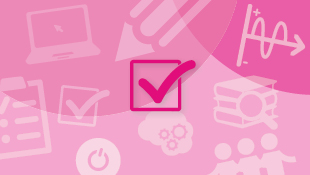-
Courses

Courses
Choosing a course is one of the most important decisions you'll ever make! View our courses and see what our students and lecturers have to say about the courses you are interested in at the links below.
-
University Life

University Life
Each year more than 4,000 choose University of Galway as their University of choice. Find out what life at University of Galway is all about here.
-
About University of Galway

About University of Galway
Since 1845, University of Galway has been sharing the highest quality teaching and research with Ireland and the world. Find out what makes our University so special – from our distinguished history to the latest news and campus developments.
-
Colleges & Schools

Colleges & Schools
University of Galway has earned international recognition as a research-led university with a commitment to top quality teaching across a range of key areas of expertise.
-
Research & Innovation

Research & Innovation
University of Galway’s vibrant research community take on some of the most pressing challenges of our times.
-
Business & Industry

Guiding Breakthrough Research at University of Galway
We explore and facilitate commercial opportunities for the research community at University of Galway, as well as facilitating industry partnership.
-
Alumni & Friends

Alumni & Friends
There are 128,000 University of Galway alumni worldwide. Stay connected to your alumni community! Join our social networks and update your details online.
-
Community Engagement

Community Engagement
At University of Galway, we believe that the best learning takes place when you apply what you learn in a real world context. That's why many of our courses include work placements or community projects.
Assignments and Exams
Most courses at NUI Galway involve coursework, continuous assessment, or assignments – terms often used interchangeably – over the academic year.
Coursework (or continuous assessment) refers to all of the graded work that you complete over the semester or the academic year, other than your formal end-of-semester exams. This can include assignments, in-class activities and tests, or online activities and tests. An assignment (sometimes called a ‘take-home assignment’) usually means a piece of work that you complete in your own time (to a deadline) and without close supervision. In-class and online tests more closely mirror exams in that they are timed and are often, but not always, supervised. They are organised by your discipline (usually a lecturer or tutor), rather than by the Examinations Office. See the list at the bottom of this page for an idea of the many types of assignments that students complete at NUI Galway.
A major advantage of coursework is that it can reduce the pressure associated with end-of-semester exams. Many students find ‘100% exams’ quite stressful. Coursework gives you opportunities to demonstrate your learning and skills in other – often more creative and engaging – ways than exams usually do. Coursework can motivate you to engage with module content from the beginning of term. Often the coursework that you complete over a semester helps you to prepare for the final exam, so there can be a double benefit to making the effort to do well in your coursework.
Coursework means that most students start clocking up (or losing!) marks early in each semester. The burden of coursework can be considerable and some students are not prepared for the amount of time and effort required to complete their coursework to the standard they would like. Doing well in your coursework requires a range of organisational and other skills not strictly related to your understanding of the module content.
Click on the boxes below to learn more about assignments and exams at NUI Galway.
Blogs
A blog is basically an electronic journal – usually a webpage that is updated on a regular basis. NUI Galway’s virtual learning environment (VLE), Blackboard, includes a facility for student blogging that some lecturers require students to use to record their ideas, activities, progress, reflections, and so on. Blogs are usually written in an informal, relaxed tone. See also learning journals/reflective journals below.
Case studies
Case studies are usually real-life but sometimes hypothetical examples that illustrate or relate to what you have learned in class. In some modules, you will be asked to apply your learning to case studies. Case studies are used extensively in business and law.
Usually you are required to identify and analyse the key issues that the case study raises, apply your understanding of the topic to the case at hand, and, sometimes, make some conclusions and/or recommendations.
Essays
The academic essay is the ‘classic’ method of assessment by means other than an exam. Academic essays are usually written in a formal, impersonal tone, require extensive research, and must follow strict conventions for citation and referencing. See the Reading and research and Academic Writing sections of the Academic Skills Hub for more.
Experiments
Many science courses involve students conducting experiments and then writing up the results. At undergraduate level, most of your experiments will be conducted in laboratories (‘labs’), and you will be required to write a so-called lab report (see below) afterwards.
Fieldwork
Lots of courses involve ‘fieldwork’, in which students go beyond the confines of the NUI Galway campus to work ‘in the field’. Examples include archaeological excavations, geological surveys, research expeditions at sea, and so on. Usually you will need to keep notes or a journal about your fieldwork as you complete it, and include these notes as part of the report that you write up when the fieldwork is complete.
Group projects
At some point in your studies, you are likely to be required to work with others to produce a joint project, report, poster, or presentation, for example. Working with other students can be fun but also challenging. Learning to overcome the challenges of teamworking is a key skill for work and life. See the Communication Skills section for more.
Lab reports
Students taking science, engineering, and health science courses spend a significant amount of time in laboratories or ‘labs’ conducting various tests and experiments. You will often work as a pair in labs, alongside a lab partner. After a lab, you will usually be required to write up a detailed lab report that includes your observations, actions, diagrams, and conclusions.
Learning journals/reflective journals
In some modules, you will be asked to reflect on your learning or your experiences as the semester progresses. You may be asked to write a weekly, fortnightly or monthly journal, and/or a longer journal that sums up your reflection over the semester or academic year. Reflective writing tends to be more informal than other academic writing and is much more subjective. See the Reflective practice and reflective writing content in the Critical Thinking section of the Academic Skills Hub for more.
Literature reviews
A literature review usually refers to a survey of all or some of the academic literature relating to a certain topic or subject. Literature reviews require extensive Library research and should aim to give a ‘snapshot’ of the current thinking (by acknowledged experts) around a particular topic. See the Reading and Research Skills and Academic Writing sections of the Academic Skills Hub for more.
Multiple-choice questions (MCQs)
Some assignments take the form of multiple-choice questions (MCQs for short), where you are presented with a question, a phrase, or a ‘stem’ and asked to choose the correct answer from a range of options (usually between three and five). Multiple-choice questions are also used extensively in exams. See the Exam Techniques content in this section of the Academic Skills Hub for more about MCQs.
Objective structured clinical examinations (OSCEs)
OSCEs are practical exams that are used extensively in the health sciences (medicine, nursing, occupational therapy, podiatry, and so on). Students move from ‘patient to patient’ (with the ‘patients’ usually played by actors) and are assessed on a range of skills and competences, including key clinical and communication skills.
Online assessments
Lots of modules will require you to complete some online assessments over the course of the semester. Sometimes you will need to buy a textbook that comes with a unique code, giving you access to the web platform where the assessments are housed. They may include multiple choice, drag-and-drop, essay-type, problem-solving, and other types of questions. Other online assessments must be completed through Blackboard. Some online assessments are timed – for example, you may be required to complete them within 25 minutes or one hour. Others you can come back to repeatedly over a longer period of time.
Oral exams
Students studying languages other than English (Irish, Spanish, French, German, Italian or Welsh) will typically take oral tests and exams, in which you are assessed on your proficiency in speaking the language – that is, your fluency, comprehension, vocabulary, and so on.
Posters and poster presentations
Posters (and poster presentations, in which students give a talk about their poster content) are popular in science, health science and engineering. A poster is basically a large, one-page document that summarises a student’s (or a group of students’) work on a particular topic. This could include an original research project (see below) or a literature review (see above), for example.
Portfolios
A portfolio is a collection of work that showcases your learning for a particular topic or module. Portfolios can be ‘hard copy’ (that is, made up of paper-based documents) or ‘soft copy’ (electronic portfolios are known as e-portfolios). Portfolios are usually built up over a full semester or academic year.
Practical demonstrations and exams
Practical exams or demonstrations can take a variety of forms, but they usually involve students showing that they can do something within a certain time frame. For example, medical students will take ‘spot tests’ where they are shown various types of tissue or body parts and must identify those tissues or body parts. OSCEs (see above) are also practical exams.
Presentations
A presentation usually involves speaking to an audience for a specified period of time about a certain topic, often using presentation slides or a poster as a visual aid. Presentation skills are highly valued in the working world, so it’s good to get some practice in as a student. See the Communication, teamwork and presentation skills section of the Academic Skills Hub for more.
Problem sheets
Students taking maths or maths-related courses are often presented with problem sheets, usually involving a series of problems to be solved through applying formulas and performing calculations. Problem sheets may also include true/false, short answer, and complete-the-sentence-type questions.
Projects
Projects can take many forms, such as building a prototype, designing and carrying out research, evaluating the research of others, and so on. You may be asked to complete a project on your own or as part of a group. Usually when an assignment is described as a ‘project’ it involves some kind of hands-on activity, rather than simply surveying the work of others. However, see research project below.
Reports
Like projects, reports can take many forms, from a report on a fieldwork trip that you have completed to a report on the current distribution of global wealth. Report writing is typically more ‘business-like’ than academic essay writing. Sentences may be shorter, the language used may be less formal or complex, and the content tends to be more factual than theoretical. Students taking science and business courses are most likely to be asked to submit reports.
Research projects
Usually a research project means one of two things: a piece of original research that you design and carry out yourself (or as part of a team), or a piece of research that surveys and evaluates the research that others have carried out in the field. See the Reading and Research Skills section of the Academic Skills Hub for more about how to do research.
Videos
Some students get the opportunity to demonstrate their learning through making a video rather than through more traditional written assignments. If you’re required to make a video, you may need certain equipment and training, which your lecturer or tutor should provide or advise you about.
This list gives a flavour of the wide variety of assessment methods (other than written exams) that are used at NUI Galway to enhance and assess your learning.
When it comes to take-home assignments, regardless of what form they come in, there are some features common to all assignments that you really need to be clear about before you start. See our assignment checklist for more on this.
Supported by the Student Project Fund




















